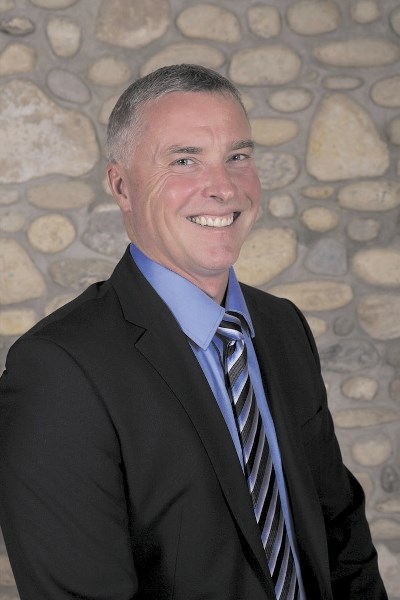Funding Family and Community Support Services (FCSS); getting RCMP officers on the streets; CP Rail right-of-ways; school reserves – these were the top priorities during the Mid-Size Cities Caucus Meeting the other week, which Cochrane mayor Ivan Brooker attended.
Held in St. Albert April 3-4, the meeting invites mayors and chief administrative officers (CAO) from 21 provincial municipalities with populations between 15,000 and just below 100,000 to discuss common goals and challenges each face going into the future.
Brooker said he preferred this event to the Mayors’ Caucuses, which was held March 5-7 in Edmonton, because Cochrane had more in common with the other attending municipalities, as they all shared comparable populations and, therefore, had similar issues each had to face.
“Someone in that room has had those same experiences,” said Brooker.
Brooker said there was a consensus among many of those who attended the caucus to compose a letter to CP Rail outlining the type of requests each municipality would like to see come to fruition, such as cleanliness, maintenance, fire safety, right-of-way and overall relations between the two parties.
Mayors and CAOs also unified against the implementation of the ‘penny tax,’ at least at this time.
The penny tax is a locally levied, value-added sales tax that would be piggybacked off the Goods and Services Tax (GST) and capped at one cent on each dollar subject to the tax. The money would be used for infrastructure needs in Western Canada.
Brooker said he and several others at the Mid-Sized Cities Caucus felt it was not an appropriate time to implement such a tax, as the province needed to resolve its own current issues before such a move would be accepted.
With FCSS funding not being increased for several years on the provincial side, ways to help support the service was also discussed.
Municipalities are often tasked with topping up FCSS funding – Cochrane provides 40 per cent of the local FCSS’s yearly budget, amounting to $354,350.
Ways to ensure there are a sufficient number of police officers patrolling municipalities was another topic.
Brooker said Cochrane RCMP personnel usually fluctuates between 16 and 18, with 18 being the desired number of officers.
With demand currently high, there are often shortages when it comes to RCMP officers.
Alberta’s municipal affairs minister, Ken Hughes, also attended the event.




